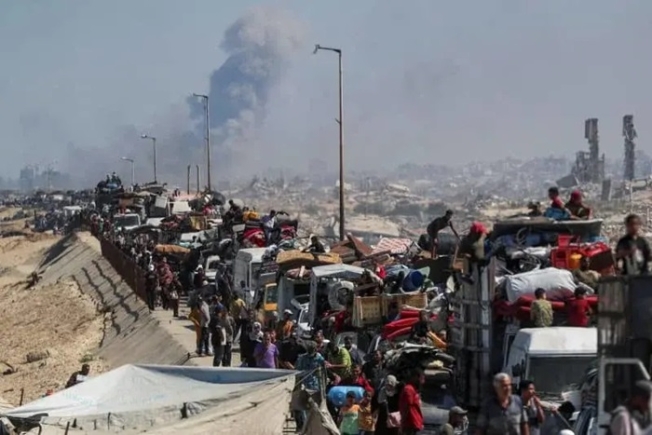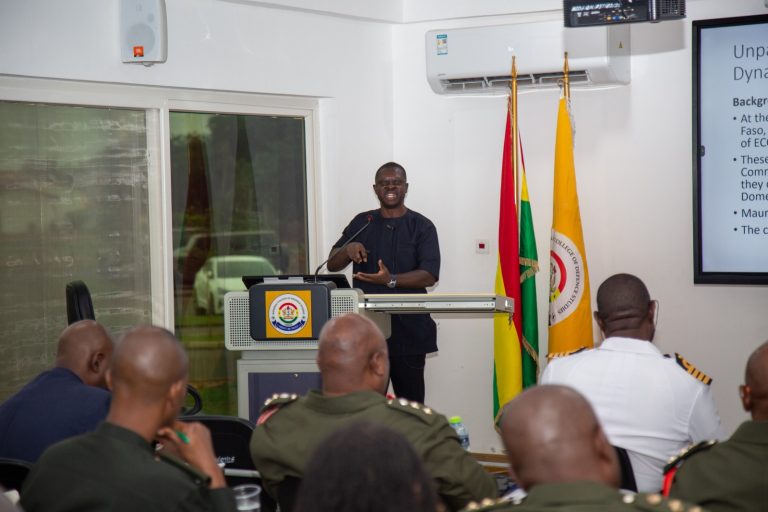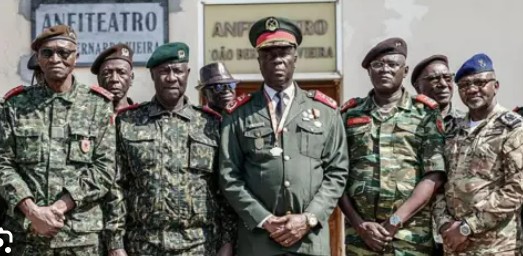1.0 Background
On September 5, the National Committee for Reconciliation and Development (CNRD) led by Col. Doumbouya announced a takeover citing allegations of corruption, mismanagement, and constitutional manipulation by President Conde’s government to extend his tenure beyond the constitutionally mandated two-term limit.
After several negotiation efforts led by ECOWAS and supported by civil society, the CNRD produced a two-year timetable for the return to constitutional order, starting January 1, 2023, and concluding by December 2024.
The CNRD subsequently unveiled 10 steps that needed to be achieved before the transition to civilian rule. These 10 steps include organizing a general population census; compiling a new electoral register; drafting a new constitution; organizing a referendum; setting up national institutions; organizing local and legislative elections, and then organizing a presidential election to mark the end of the transition. However, none of these steps are with specific timelines which is worrying and raises uncertainties about the junta’s commitment to relinquish power to constitutional rule.
2.0 Transition Progress and Challenges
With just 10 months left until the conclusion of the transition period, there has been scant progress made towards fulfilling the 10 steps required to transition the country back to civilian rule. However, there have been some minor advancements, particularly in the drafting of a new constitution, a key step towards the return of civilian rule.
In a recent development in February 2024, the President of the National Transition Council announced the presentation of the new constitution, slated for March 2024, in preparation for a forthcoming referendum. On the other hand, the Ministry of Territorial Administration has also initiated efforts to commence the civil status census process, focusing on individuals lacking marriage certificates, birth certificates, and families who have lost a parent but do not possess a death certificate. Owing to this, the government has launched the recruitment of nearly 10,000 agents to carry out the civil status census. Additionally, procedures for conducting a general population census have been initiated to facilitate the compilation of the electoral register. Furthermore, dialogue among stakeholders is currently underway, although criticized for its lack of inclusivity.
Amidst these circumstances, the transition has been marred by significant challenges, including the prolonged suspension of internet access for months, the shutdown of numerous radio and television channels, and the incarceration of multiple journalists. Since the inception of the transition period until now, approximately twenty demonstrators have lost their lives, with arbitrary arrests during peaceful citizen protests organized by various factions. These situations flagrantly contravene articles 8 and 12 of the transition charter, which emphasize the safeguarding of citizens’ fundamental rights, duties, and freedoms.
As of now, following 28 months of military oversight, the political landscape remains fraught with tension, as the government and political stakeholders have yet to achieve a consensus to foster an inclusive approach to managing the transition. Their discord fails to foster social harmony or advance human rights promotion.
2.1 Government Dissolution and Rumored Transition Extension
However, amidst this precarious situation, a significant development unfolded on February 19, 2024. The president of the transition dissolved the government in response to escalating cacophony at the highest levels of the state. According to sources, this dissonance between several ministers and the prime minister was exacerbated by differing opinions on investigations initiated by the Minister of Justice into financial management within various government departments and also at the local governance level. The Prime Minister opposed this investigation, deeming it inappropriate, further deepening the rift with no apparent resolution until the dissolution of government on February 19, 2024.
As a consequence, ministers, mayors, and several other executives have been barred from leaving the country, with their travel documents confiscated by the CNRD. The transition appears to be at a standstill, exacerbating the already difficult situation faced by the population, who grapple with socio-economic issues such as fuel shortages, internet disruptions, electricity problems, curtailed freedoms, and soaring food prices.
Following the dissolution of the government reports from media outlets such as Africa Intelligence suggest that the junta has discreetly approached Western partners about a potential extension of the transition period, which is set to conclude at the end of 2024 but may be prolonged for an additional year. The rumor is therefore gaining momentum and relaunching the debate in Guinea regarding the junta’s intentions to prolong the transition beyond December 2024. Some citizens even speculate that the dissolution of the government was an antic to extend the transition timeline.
On the back of this, on Monday, February 26, the country’s trade union launched a general strike supported by demands such as the release of detained journalists, the lifting of the Internet ban, and the improvement in the living conditions of citizens, etc. This strike lasted for two days before being suspended after the release of certain journalists and the lifting of the ban on the internet.
After this, the CNRD through a press release read on national television on February 27, 2024, announced the appointment of the former vice-president of the main opposition party as prime minister. Aged 66 and former minister of national reconciliation during the 2008 transition under the era of Moussa Dadis Camara, the new prime will therefore unveil the list of members of his government in a few days to come. In his first address, the Prime Minister promised to promote dialogue with all actors and all parties to find solutions to the crisis that has shaken the country since September 2021.
2.2 Views on Sahel States Withdrawal
There is a general widespread disapproval of the withdrawal of the Alliance of the Sahelian States (Mali, Niger, and Burkina Faso) from ECOWAS. Discussions in the media landscape indicate that citizens disapprove of this decision, viewing it as detrimental to its citizens, and describing it as a hard blow for West Africa’s integration.
3.0 WADEMOS Intervention
Against this backdrop, the West Africa Democracy Solidarity Network (WADEMOS) has organized missions and activities, complemented by CSO-led national-level advocacy programs to support the transition process in Guinea. Notably, WADEMOS’ most recent efforts in November 2023 in Conakry entailed a validation workshop of national strategies to support transition countries in West Africa and engagements with key transitional authorities, including the National Transition Council, the Ministry of Territorial Administration, and several other actors involved in the process such as the US embassy and civil society organizations with the overarching goal of contributing to the resolution of the crisis.
4.0 Conclusion
Guinea’s transition process underscores the challenges and complexities faced by the country in its journey towards constitutional order. Despite efforts outlined by the CNRD to return to constitutional order, the lack of specific timelines raises uncertainties about the junta’s commitment to relinquish power. Progress towards fulfilling transition steps has been minimal, with challenges including the shrinking civic space and human rights violations. Concerted efforts are needed to overcome the challenges and uncertainties surrounding the transition process, with a focus on promoting transparency, inclusivity, and respect for human rights to ensure a peaceful and democratic transition.



